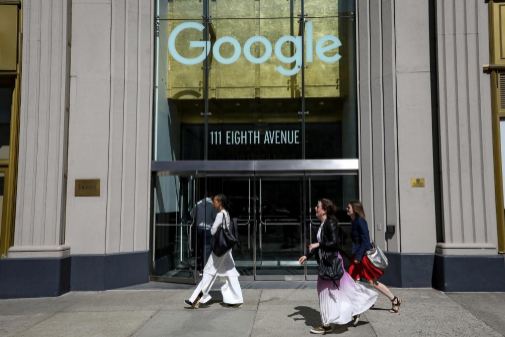Political parties can no longer launch ads on Google segmented by gender, age or approximate location of users. The network giant has announced this new measure as part of its new election campaign advertising policy , which will have immediate effect in the United Kingdom and will be applied in the rest of Europe before the end of the year .
Google already had limits to the level of precision that it was possible to select when creating this type of ads but the new measures further restrict what is known as microtargeting , the possibility of designing very effective campaigns by selecting a very specific audience. "Given the recent concern, the debate generated around political advertising and the importance of confidence in the democratic process, we want to improve voter confidence about the political ads they can see on our advertising platforms," explains the company.
One of the secrets of Google's commercial success is the incredible level of detail that advertisers can achieve using their advertising tools. Google knows a lot about us and uses that information to create very detailed profiles that advertisers can select to ensure maximum return on investment from their campaigns.
This level of granularity, however, has begun to concern many political analysts because they believe it facilitates the rapid dissemination of propaganda messages that are often baseless, but are very effective in certain segments of the population.
Several platforms on the network are, consequently, taking steps to limit the effects of these campaigns. Twitter , for example, announced at the end of October that it would ban all kinds of political ads in campaign. The TikTok social network has also done so. Snapchat allows them, but also with some limitations and verifying the information present in them.
The addition of Google to this trend increases the pressure on the only company that has so far refused to take a position in this debate: Facebook . The social network has admitted that it does not verify the claims that the candidates make in their electoral announcements, a decision that has garnered criticism both outside and within the company itself and that is especially significant given the scope of the platform.
Rumors of a possible change in strategy or at least the inclusion of certain control tools have triggered the alarms of some communication teams. The organization of the campaign to re-elect Trump in the US in the next 2020 elections, for example, has alerted his supporters that a change in Facebook's policy would negatively affect the campaign. "This would especially harm the smallest voices and problems that the public does not know or the news is NOT covering," says Gary Coby , digital head of Trump's 2020 campaign.
According to the criteria of The Trust Project
Know moreTechnology Wallapop suffers a 'hacking' that forces to restart the accounts of its users
Privacy 93% of porn pages sell your data to third parties
Technology Discover how to hack Alexa and Siri with a laser located more than 100 meters away

